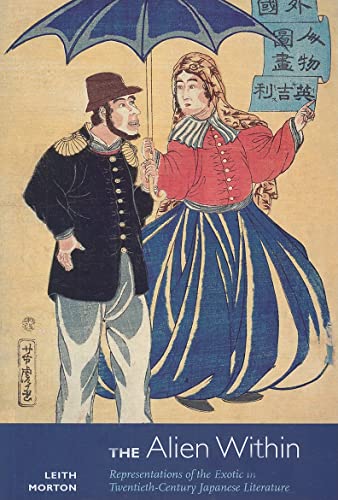

Most ebook files are in PDF format, so you can easily read them using various software such as Foxit Reader or directly on the Google Chrome browser.
Some ebook files are released by publishers in other formats such as .awz, .mobi, .epub, .fb2, etc. You may need to install specific software to read these formats on mobile/PC, such as Calibre.
Please read the tutorial at this link. https://ebooknice.com/page/post?id=faq
We offer FREE conversion to the popular formats you request; however, this may take some time. Therefore, right after payment, please email us, and we will try to provide the service as quickly as possible.
For some exceptional file formats or broken links (if any), please refrain from opening any disputes. Instead, email us first, and we will try to assist within a maximum of 6 hours.
EbookNice Team

Status:
Available0.0
0 reviews
ISBN 10: 0824832922
ISBN 13: 9780824832926
Author: Leith Morton
Readers worldwide have long been drawn to the foreign, the exotic, and the alien, even before Freud’s famous essay on the uncanny in 1919. Given Japan’s many years of relative isolation, followed by its multicultural empire, these themes seem particularly ripe for exploration and exploitation by Japanese writers. Their literary adventures have taken them inside Japan as well as outside, and how they internalized the exotic through the adoption of modernist techniques and subject matter forms the primary subject of this book.
The Alien Within is the first book-length thematic study in English of the alien in modern Japanese literature and helps shed new light on a number of important authors. Morton examines the Gothic, a form of writing with strong affinities to European Gothic and a motif in the fiction of several key modern Japanese writers, such as Arishima Takeo. Morton also discusses the translations of Tsubouchi Shoyo, Japan’s most famous early translator of Shakespeare, and how this most alien and exotic author was absorbed into the Japanese literary and theatrical tradition. The new field of translation theory and how it relates to translating Shakespeare are also discussed.
Morton devotes two chapters to the celebrated female poet Yosano Akiko, whose verse on childbirth and her unborn children broke taboos relating to the expression of the female body and sensibility. He also highlights the writing of contemporary Okinawan novelist Oshiro Tatsuhiro, whose work springs from what is for Japanese an exotic subtropical landscape and makes symbolic reference to the otherness at the heart of Japanese religiosity. Another significant but equally overlooked subject is the focus of the final chapter, which analyzes the travel writing of internationally best-selling author Murakami Haruki. Murakami’s great corpus of work includes a one-volume study of the 2000 Sydney Olympics, which Morton discusses in detail.
The Alien Within breaks new ground in its treatment of the exotic in modern Japanese writing and in its discussion of authors and work hitherto absent from critical discussions in English. It will be of significant interest to readers of literature and students of modern Japanese culture and women’s writing as well as those fascinated by the occult, Gothic fiction, and the exotic.
Translating the Alien
Tsubouchi Shōyō and Shakespeare
Naturalizing the Alien
Yosano Akiko's Revolution in Verse
The Demon Within
Yosano Akiko and Motherhood
The Gothic Novel
Izumi Kyōka and Tanizaki Jun'ichirō
Gothic Stylistics
Arishima Takeo and Melodramatic Excess
Female Shamans
Oshiro Tatsuhiro and Yuta
History / Fiction / Identity
Ōshiro Tatsuhiro and the Uncanny
The Alien Without
Murakami Haruki and the Sydney Olympics
the alien within: representations
the alien within
the alien within resident alien
the alien within 1995
the alien within film
Tags: Leith Morton, The Alien Within, the Exotic, Twentieth century